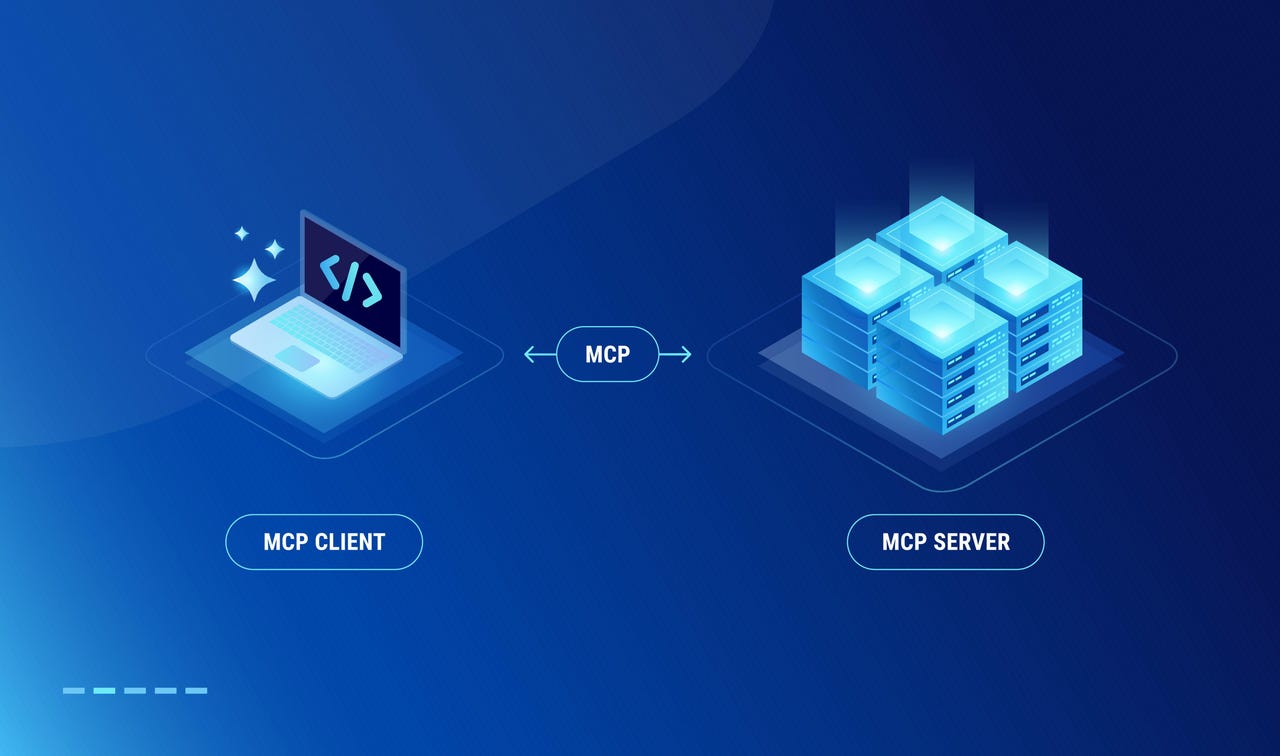Top Stories
Anthropic’s MCP Protocol Poised to Transform AI Integration NOW

New reports confirm that Anthropic’s Model Context Protocol (MCP) is rapidly emerging as a game-changer for integrating artificial intelligence across various platforms. Just announced, this open-source protocol connects AI applications to databases, web services, and local resources, making it essential for Chief Information Officers (CIOs) to pay attention NOW. With a fervent following among AI developers, MCP’s influence is expanding quickly, and its adoption is set to accelerate.
MCP operates using a client-host-server architecture, allowing AI applications to act as clients while external systems serve as MCP servers. This setup is touted as a promising standard for “AI-native integration.” While traditional APIs remain crucial, MCP enhances their functionality by offering a more dynamic and context-aware connection. This is particularly vital for the next generation of enterprise AI systems known as agentic AI, which require persistent interactions to operate effectively.
Agentic AI refers to autonomous systems that can independently pursue goals by reasoning and acting over time. These systems are likened to the AI behind autonomous vehicles but are applied in various business contexts. As businesses increasingly adopt MCP for internal integration, the potential for efficiency gains is significant. For example, Kevin McDonald, a senior consultant at Hylaine, noted that custom MCP servers are streamlining access to company knowledge bases and customer relationship management (CRM) systems, enabling quicker responses to inquiries.
In the hospitality sector, early adopters like Apaleo are leveraging MCP servers to enhance operational workflows. With over 2,000 properties globally, including hotels under the CitizenM brand, Apaleo’s MCP server allows AI agents to automate tasks such as revenue management and corporate sales reporting. Stephan Wiesener, CTO and Co-Founder of Apaleo, highlighted that these AI agents can autonomously analyze booking data to identify trends and recommend pricing adjustments, significantly improving operational efficiency.
Moreover, hotels are utilizing MCP to automate daily operational briefings, saving time and ensuring consistent oversight without manual input. Some establishments are even experimenting with using AI agents for comprehensive accounts receivable processes, which previously required extensive coding and coordination.
As MCP gains traction, industry experts are keenly observing its broader implications. Joseph Ours, partner and AI solutions director at Centric Consulting, described MCP as occupying a “consequential middle ground” in the tech landscape. While its adoption is swift, the quality of MCP implementations varies significantly, which could influence its long-term success.
In a bold prediction, Xiangpeng Wan, product lead at NetMind.AI, likened MCP to the “USB-C of LLMs,” signaling its potential to become a universal standard. The integration of MCP into major AI technologies is already underway, with OpenAI announcing plans to incorporate MCP into its ChatGPT app by March 2025, followed by Google DeepMind in April 2025. This momentum suggests that MCP could revolutionize how AI connects to external data.
As businesses and consumers seek more intuitive ways to interact with software, MCP may redefine expectations, allowing users to access tools simply through conversation with their AI agents. This shift towards seamless integration could pave the way for MCP’s mainstream adoption, making it a critical focus for CIOs and tech leaders moving forward.
In conclusion, as MCP continues to evolve, industry stakeholders should closely monitor this protocol. With its potential to enhance operational efficiencies and streamline integrations, the future of MCP looks promising. Stay tuned for further developments as MCP reshapes the landscape of AI integration.
-

 Science1 week ago
Science1 week agoResearchers Challenge 200-Year-Old Physics Principle with Atomic Engines
-

 Politics1 week ago
Politics1 week agoNHP Foundation Secures Land for 158 Affordable Apartments in Denver
-

 Health1 week ago
Health1 week agoNeuroscientist Advocates for Flag Football Until Age 14
-

 Lifestyle1 week ago
Lifestyle1 week agoLongtime Friends Face Heartbreak After Loss and Isolation
-

 Health1 week ago
Health1 week agoFDA Launches Fast-Track Review for Nine Innovative Therapies
-

 World1 week ago
World1 week agoTroops to Enjoy Buffalo Chicken, Thai Curry in 2026 MREs
-

 Business1 week ago
Business1 week agoMaine Housing Inventory Surges to Post-Pandemic High
-

 Top Stories1 week ago
Top Stories1 week agoUnforgettable Moments: The Best Victoria’s Secret Performances
-

 Politics1 week ago
Politics1 week agoIsraeli Air Strikes in Lebanon Kill One, Wound Seven Amid Tensions
-

 Politics1 week ago
Politics1 week agoMassachusetts Lawmakers Resist Audit After Voter Mandate
-

 World1 week ago
World1 week agoGlobal Military Spending: Air Forces Ranked by Budget and Capability
-

 Business1 week ago
Business1 week agoSpirit Airlines Cuts Workforce with Furloughs for 365 Pilots









